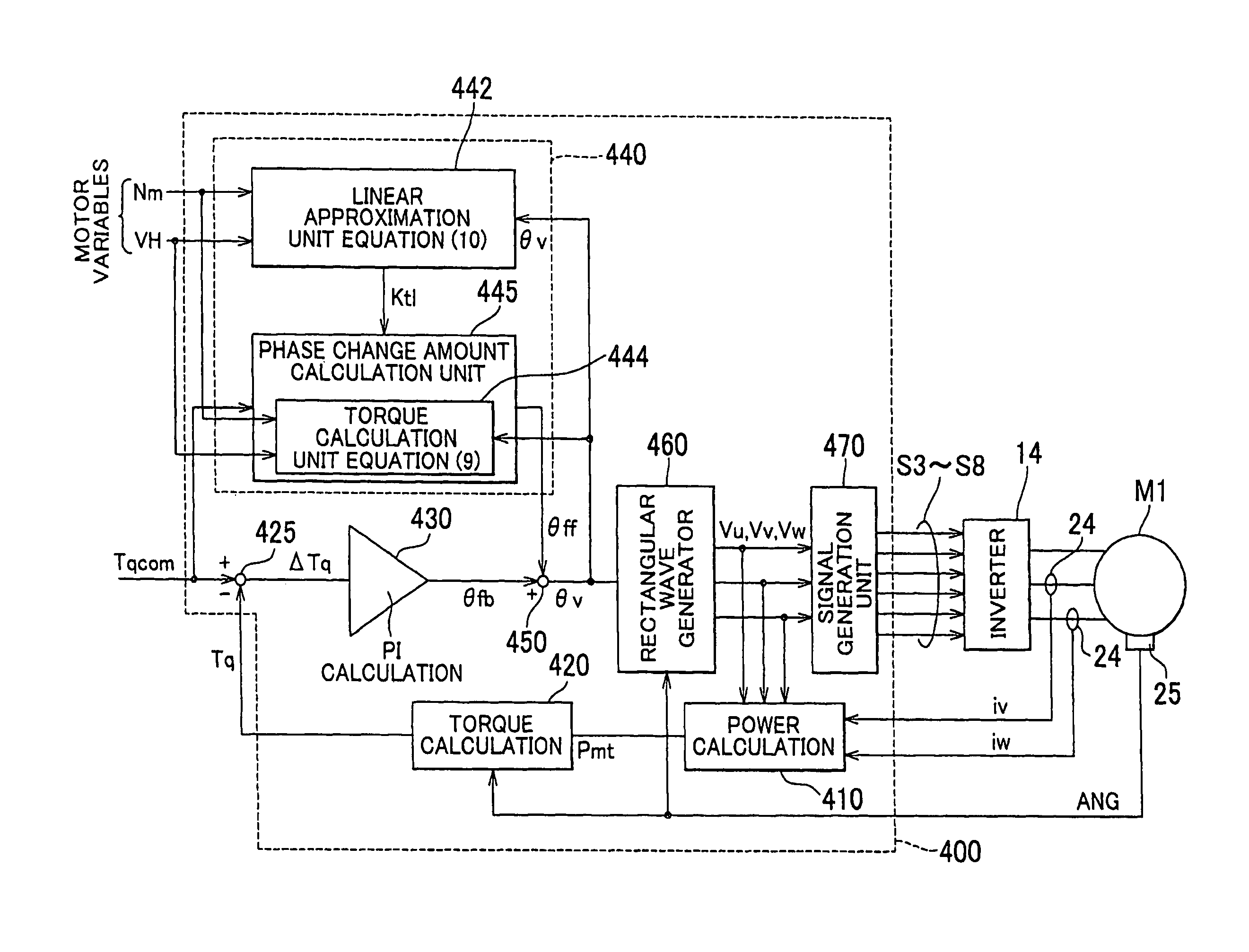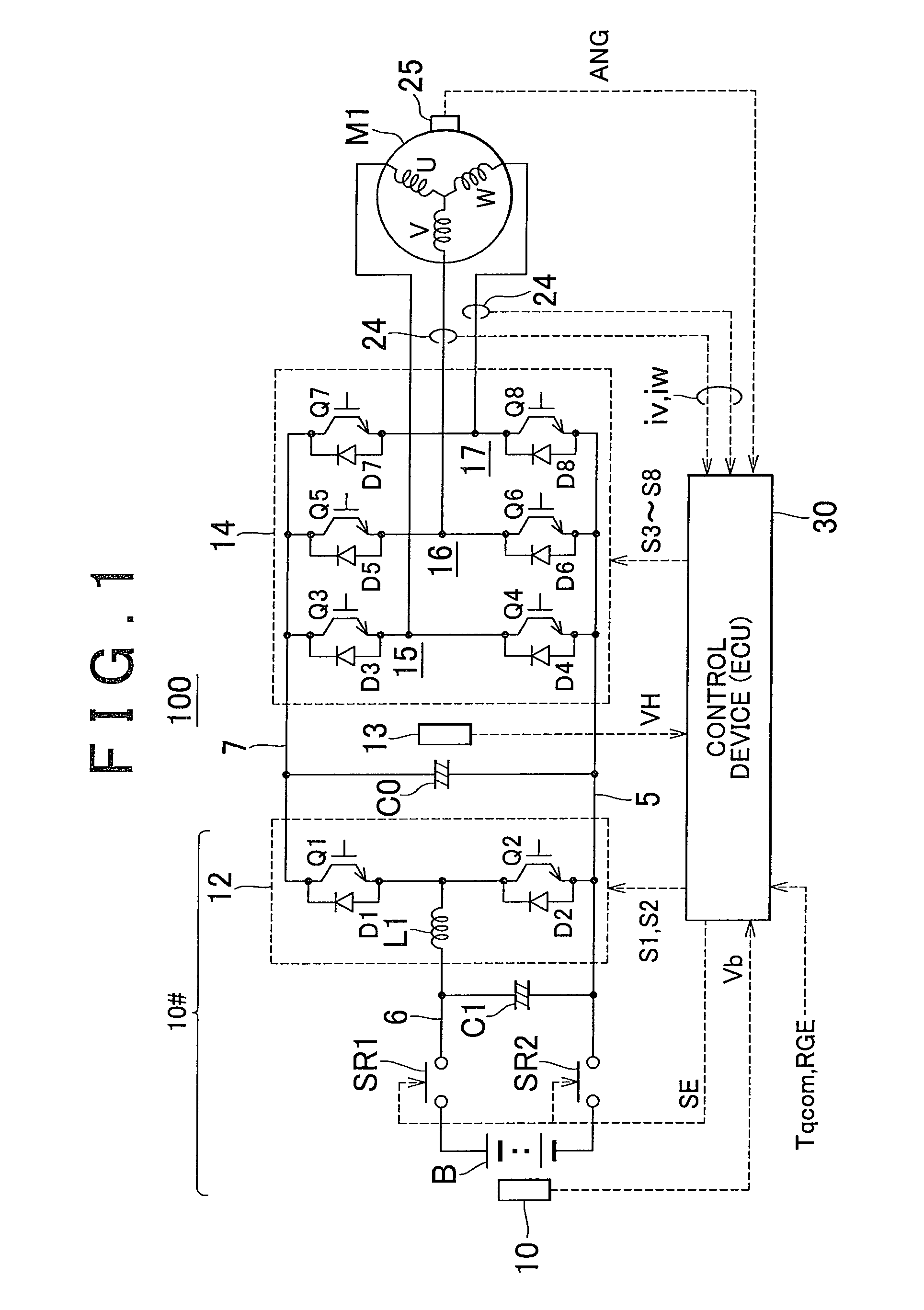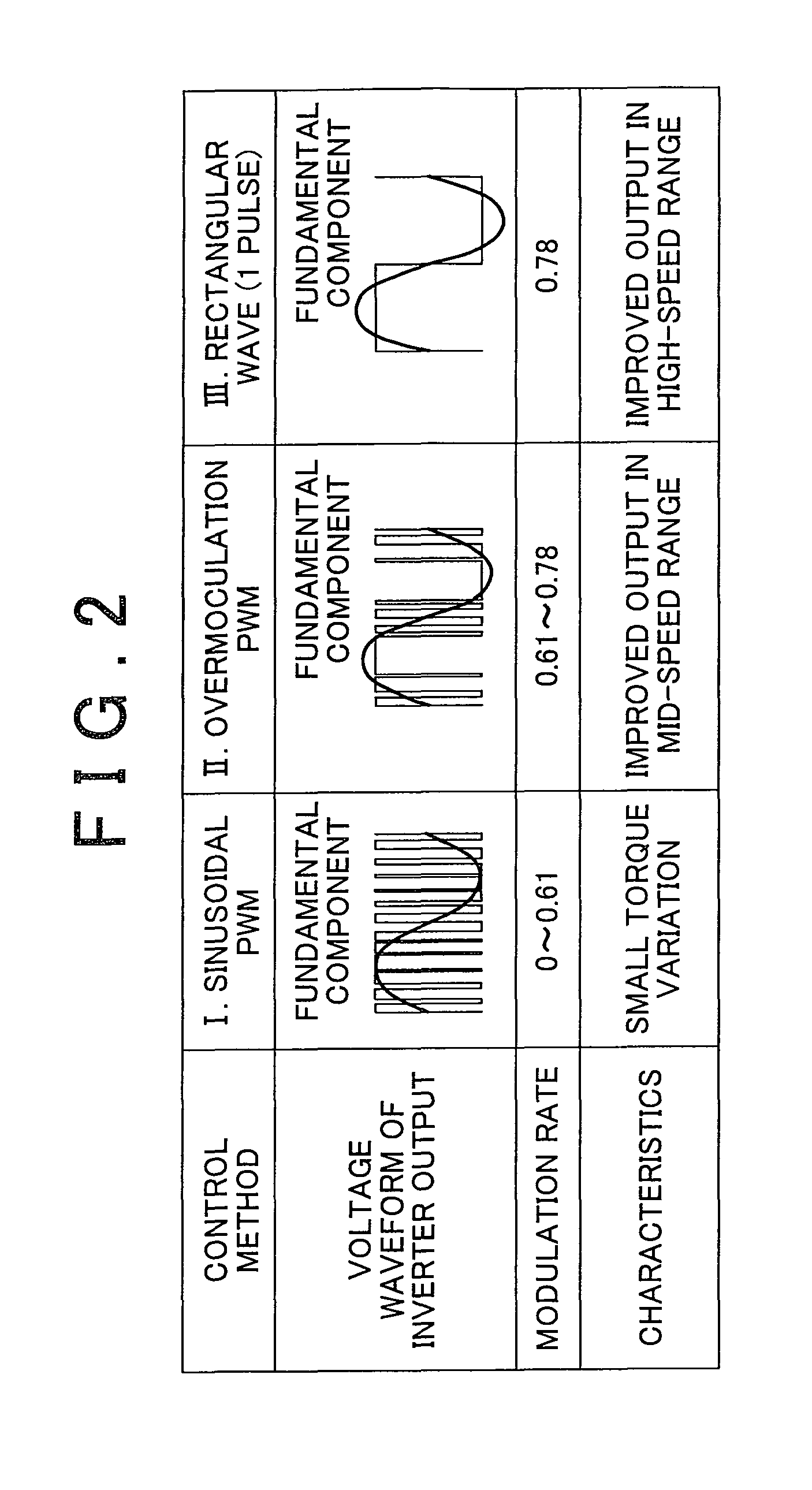Control system for AC motor
a control system and ac motor technology, applied in the direction of electric generator control, dynamo-electric converter control, dynamo-electric gear control, etc., can solve the problem of difficulty in providing high output or power in a high-speed region, and achieve the effect of simple computation or calculation
- Summary
- Abstract
- Description
- Claims
- Application Information
AI Technical Summary
Benefits of technology
Problems solved by technology
Method used
Image
Examples
first embodiment
[0045]First Embodiment FIG. 1 shows the overall construction of a control system for an AC (alternating-current) motor according to the invention.
[0046]Referring to FIG. 1, a motor control system 100 includes a DC voltage generating portion 10#, a smoothing capacitor C0, an inverter 14, a control device 30 and an AC motor M1.
[0047]The AC motor M1 is an electric motor operable to generate torque for driving drive wheels of an electrically operated vehicle, such as a hybrid vehicle or an electric vehicle. In this embodiment, electrically operated vehicles include all types of vehicles on which an electric motor for generating wheel driving force, including an electric vehicle on which no engine is installed. The AC motor M1 is generally configured to have both the functions of a motor and a generator. When used in a hybrid vehicle, the AC motor M1 may be configured to have the function of a generator driven by the engine. Also, the AC motor M1 may be incorporated in a hybrid vehicle t...
first modified example
[0125 of the First Embodiment In the operation (FIG. 6) according to the first embodiment, the feed-forward term θff is calculated by obtaining the operating point Pc on the tangent TL, instead of the operating point Pb on the torque characteristic curve 500 which is to be primarily obtained, based on the slope of the tangent at the current operating point Pa on the torque characteristic curve 500. Accordingly, a large error may occur in the feed-forward term θff set in the above manner, since a difference between the operating points Pb and Pc may become large due to a difference between the slopes of the tangents at the operating points Pa, Pb, depending on the region of the voltage phase concerned.
[0126]In the first modified example of the first embodiment, therefore, a method of calculating the feed-forward term θff with improved accuracy, namely, an operation to make the feed-forward term θff closer to a difference (θ0-θ0#) in voltage phase between the current operating point P...
second modified example
[0135]Second Modified Example of the First Embodiment In the first embodiment, a method for determining the feed-forward term θff with even higher accuracy will be described.
[0136]FIG. 11 is a graph useful for explaining calculation of an integral term shift amount in rectangular wave voltage control according to the second modified example of the first embodiment.
[0137]Referring to FIG. 11, in the second modified example of the first embodiment, the operating point Pe is obtained in the same manner as in the first modified example of the first embodiment, and then an operating point Pf (torque value T3) that lies on the torque characteristic curve 500 and has the same voltage phase θ2 as the operating point Pe is further obtained.
[0138]Then, if a torque difference |T3−Tqcom| is equal to or larger than a predetermined value, the slope k′ of a straight line 530 that passes the operating points Pa and Pf is obtained, and the operating point Pe is updated to an operating point that lie...
PUM
 Login to View More
Login to View More Abstract
Description
Claims
Application Information
 Login to View More
Login to View More - R&D
- Intellectual Property
- Life Sciences
- Materials
- Tech Scout
- Unparalleled Data Quality
- Higher Quality Content
- 60% Fewer Hallucinations
Browse by: Latest US Patents, China's latest patents, Technical Efficacy Thesaurus, Application Domain, Technology Topic, Popular Technical Reports.
© 2025 PatSnap. All rights reserved.Legal|Privacy policy|Modern Slavery Act Transparency Statement|Sitemap|About US| Contact US: help@patsnap.com



